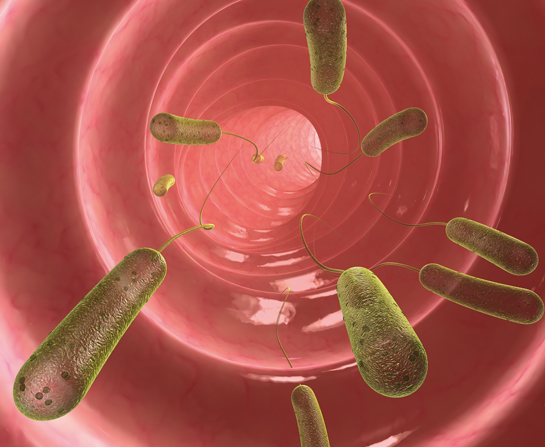Your Gut’s Best Friend
April 28, 2022 Return

Many of us pay our gut very little attention until we eat something that does not agree with us. Maybe it is time to change that, as a healthy gut can make a difference to our health.
While the colon is part of the digestive system, it plays no role in digesting our food. By the time the food reaches the colon, it has already been digested. So, the colon absorbs water from what is left and then, processes the leftovers into the material that normally goes out the back door when we sit on the toilet bowl.
However, the colon has another important role that is not related to the toilet, thanks to the bacteria that make their home there. From the moment we come into this world, bacteria have been growing in our intestines, especially the colon. Do not panic – these bacteria are our friends, and they help us in ways that many of us may not imagine. Chief among these bacteria are those called Bifidobacteria.
Can we call them Fido?
So far, we have identified about 30 types of Bifidobacteria living in our intestines. They feed on some of the food in our gut (do not worry, there are plenty to go around), and in return, they repay us in the following ways:
Keep the bad guys out. Bifidobacteria produce a substance called acetic acid which suppresses the growth of potentially harmful bacteria.
A boost for our immune system. While we do not know the exact mechanism yet, there are strong indications that Bifidobacteria can stimulate the production of antibodies, increase our resistance to toxins and may even suppress the development of cancer cells!
More love for the gut
As you can see, it can be good to encourage the Bifidobacteria families to thrive in our gut. A way to do this is to include prebiotics in our daily diet. Prebiotics are used as an additional food source for the bacteria, and can be found in food rich in dietary fibre.
You can get your dietary fibre from the following:
- Fruits and vegetables – eat plenty every day!
- Yoghurts and dairy products with added prebiotics – check the food labels to ensure before buying.
- Supplements containing both soluble and insoluble fibres.
| Under 50 years old | Over 50 years old |
|---|---|
Men: eat 38g every day Women: eat 25g every day | Men: eat 30g every day Women: eat 21g every day |
References:
Ishibashi N, Yaeshima T and Hayasawa H. (1997). Bifidobacteria: their significance in human intestinal health. Mal J Nutr 3: 149-159.
Mayo Clinic. Available at www.mayoclinic.org
If you like this article, do subscribe here.
